Pets become seniors when they enter the last quarter of their expected lifespan. Age itself is not a disease, although pets in this life stage are more likely to develop diseases. Pet owners, in partnership with their veterinary team, can make simple changes to their pet’s nutrition and supplement regimen to optimize health and address disease. The Envision More Veterinary Ophthalmology crew sees many aging patients in our clinic each day, and we offer our list of helpful tips for supporting your furry pal’s eye, brain, and overall health during their senior years.
#1: Invest in high-quality senior or disease-specific nutrition
Nutrition can have a major impact on disease management and overall health in senior pets. Therapeutic (i.e., prescription or nutritionist-developed) diets can manage conditions such as kidney disease, gastrointestinal (GI) disease, endocrine dysfunction, heart disease, or cancer. Also, a diet rich in short-chain fatty acids (e.g., MCT oil), omega-3 fatty acids, antioxidants, B-complex vitamins, selenium, and certain amino acids has been shown to reduce inflammation and improve brain function in aging pets.
#2: Try anti-oxidant supplements for eye health
Our team recommends that all pets older than 10 years take an eye health supplement called Ocu-Glo. This supplement, which is packed with anti-oxidants, may help slow cataract formation or progression in diabetic or aging pets and can slow down retinal degeneration in pets with progressive retinal atrophy. Taking Ocu-Glo preventively or after an eye disease develops can help preserve your senior pet’s vision longer.
#3: Visit your primary veterinarian regularly
Regular visits to your pet’s primary veterinarian can ensure common diseases in senior pets are diagnosed and addressed early in their course. Treatment during early stage disease is generally more successful than for diseases diagnosed when they have advanced, when pets may already be suffering from pain or other consequences. Because senior pets age faster than younger pets or humans, the general guideline is to visit the veterinarian at least twice per year and opt for wellness screening tests, including blood and urine panels, at least annually.
#4: Control painful pet conditions
Pain is a main consideration when evaluating an older pet’s quality of life. Many different health conditions can cause pain, but pets will cover up pain signs or show only subtle changes that can be hard for pet owners to recognize. Regular veterinary visits will help uncover the hidden pain or detect changes that indicate a presumed painful underlying condition. Arthritis and dental disease are common painful conditions that your veterinarian can help you treat with pain medications, procedures, supplements, rehabilitation therapies, and more.
#5: Get ahead of cognitive decline
Cognitive decline is extremely common in dogs and cats during their “teen” years—ages 11 and up. The older the pet, the more likely they will show at least one or two cognitive decline signs, which can include:
- Changes in memory
- Changes in the sleep-wake cycle
- Confusion or disorientation
- House-soiling or changes in litter box usage
- Changes in social interactions
- Anxiety
- Changes in activity or energy levels
Regular daily exercise and a diet rich in antioxidants are good defenses against cognitive decline development. For established issues, your veterinarian can prescribe proven treatments, including medications (e.g., selegiline, SSRIs), supplements (e.g., SAMe, melatonin), and prescription diets.
#6: Maintain a daily pet routine
Older pets often struggle to deal with stress or daily routine changes. Maintaining a daily schedule helps reduce anxiety and is especially helpful for establishing more normal sleep-wake patterns in pets with cognitive decline or visual impairment. Ensure you include spending quality time with your pet in ways they enjoy, such as grooming, playing, exercising, training, or cuddling, in their daily routine.
#7: Monitor your senior pet’s quality of life
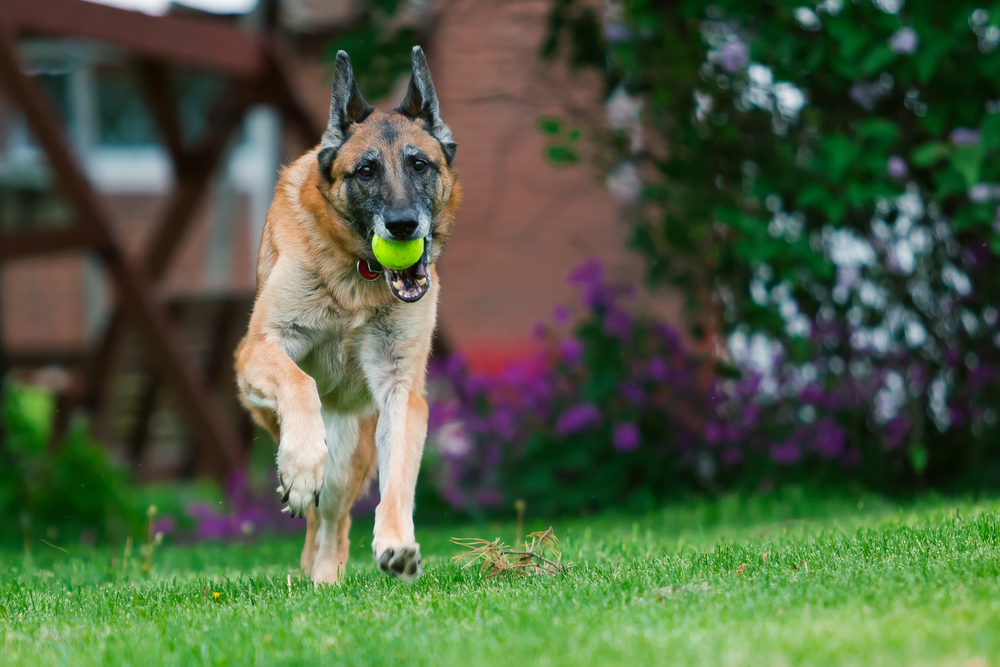
As pets age, they develop more medical issues and their quality of life can decline. Your primary veterinarian is an excellent resource to help you determine when your pet is having more bad days than good. Depending on where you live, you may have access to mobile veterinary services that provide hospice and palliative care for ailing senior pets. Collaborate with your primary veterinary team to ensure you are doing all that you can to ameliorate quality of life issues and that you understand when to say “Goodbye.”
Extra love and care for your four-legged friend during their golden years will help them maintain the best possible health and quality of life while boosting your bond. Many senior pets develop eye health or vision-impairing diseases, which our Envision More Veterinary Ophthalmology team can treat to help ensure comfort and functionality. Contact us to schedule an ocular examination or recheck visit for your aging furry pal.

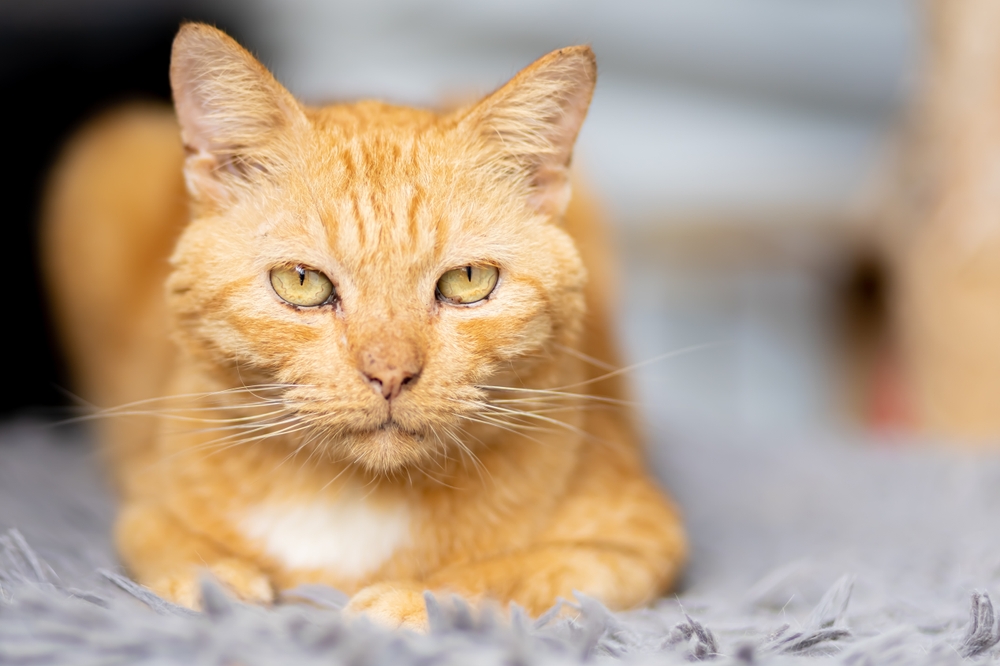
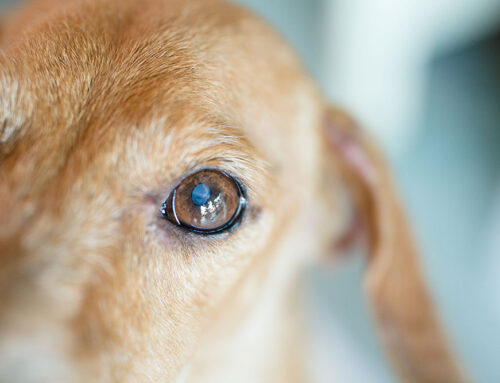
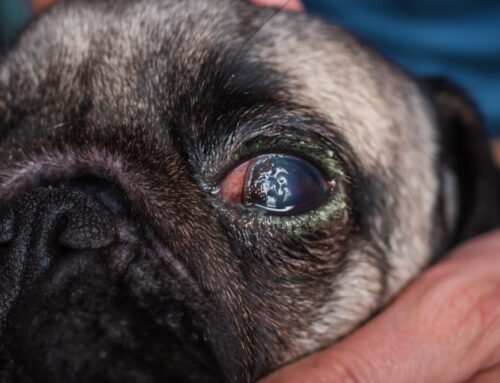
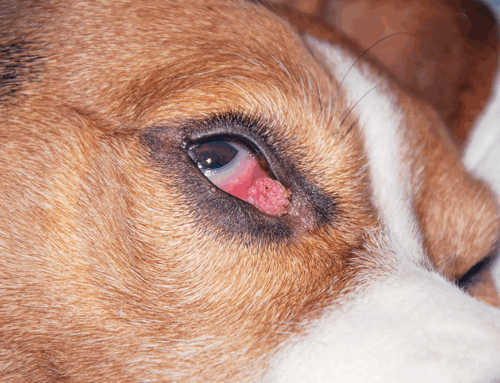
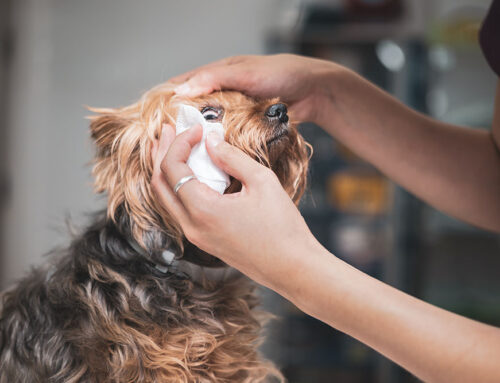

Leave A Comment